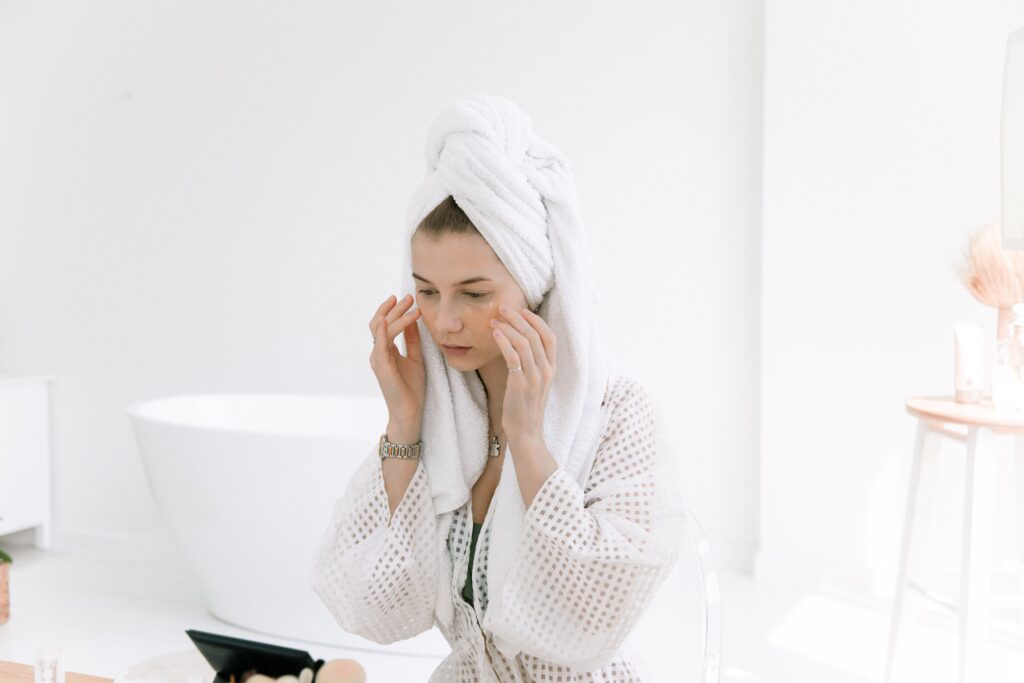
We all know that skin is the largest organ in the body. It is made up of multiple layers with functions that are crucial in protecting our bodies. Skin is the first line of defence against bacteria, viruses, and chemical substances we encounter outside. It also regulates body temperature, serves as a shock absorber (but waterproof!), controls moisture loss, and maintains fluid balance. With its big role, it can substantially improve our physical health when in good condition or severely affect it when compromised.
While age-related skin changes are inevitable, we definitely want to decelerate skin ageing. Of course, we want to look young and vibrant! This is why we have to also closely pay attention to our skin’s health and build healthy skincare habits.
What are the indicators of skin damage?
Have you seen your skin being so flaky and peeling? Or has it ever felt itchy, tight, and rough when touched? These are the common indicators of unhealthy and damaged skin. In addition, skin redness, Rosacea flare-ups, rashes like eczema, wrinkles, or breakouts are visible when skin is impaired.
While they are generally harmless, some of them might indicate an underlying skin issue or health condition that requires prompt treatment so as not to cause major inconvenience. Unfortunately, when skin health is neglected over time, it can lead to premature ageing and other serious skin diseases.
How To Fix Damaged Skin?
Good news! Our skin regenerates itself. Our epidermis continuously produces new skin cells. Per Cleveland Clinic, these cells replace the approximately 40,000 dead cells that our skin sheds every day. We also technically have a new skin every 28 to 30 days.
While this is a fact, it does not imply we no longer need to take care of our skin. We want to make sure that as early as possible, we keep our skin health in check to avoid irreversible damage in the future. So, how do we repair damaged skin and keep it healthy?
-
Safeguard Yourself From The Sun
While it’s fun to bask under the sun especially during summer, did you know that the single biggest cause of skin damage is not ageing but exposure to sunlight? Too much exposure to the sun’s ultraviolet (UV) rays damages the skin’s fibres and can put our skin at risk for premature ageing and worse, cancer. This is why it is advisable to apply a broad-spectrum sunscreen with a higher SPF to the face, neck and chest every day. As much as we can also, stay in the shade between 10 a.m. and 4 p.m when the sun’s UV light is strongest.
-
Get a Good Night’s Sleep
It is no question that getting 7 to 9 hours of sleep at night every day is vital for better health. When we sleep, our body undergoes a repair cycle and regenerates skin, muscles, brain cells, and blood. If we get inadequate sleep, the production of collagen, which prevents our skin from being saggy, is affected. In addition, lack of sleep can exacerbate acne breakouts.
Sleep-deprived people mostly have increased signs of premature skin ageing, and their skin’s ability to repair itself diminishes. So, if we want to get that glow and look youthful, we should get enough sleep every day.
-
Eat Nutritious Meals
To keep our skin looking young forever, so to speak, we’ve got to eat healthy food to fortify our skin health from the inside out. While also beneficial, most skincare products only go skin-deep. This is why it’s best to complement them with a good diet.
There are a bunch of skin-healthy edibles we can add to our meal plans. These include tomatoes, carrots, yellow and orange fruits, green tea, kale, soy, olive oil, Omega-3, and more. Of course, cutting back on one’s alcohol intake reduces the risk of developing non-melanoma skin cancers.
-
Stay Hydrated
We are well aware that it’s healthy to drink between 5 to 8 glasses of water every day. But the question is, are we really drinking the right amount of water every day?
Staying hydrated rejuvenates our skin since its outermost layer gets the needed moisture to rinse out toxins and deliver nutrients to the skin’s cells. Well-hydrated skin is less sensitive to irritants and germs, is more elastic, can reduce wrinkles, can cure dry skin, and help prevent our skin from sagging.
-
Manage and Relieve Stress
Stress triggers the release of hormones like cortisol. This makes skin oilier, which results in being prone to acne. In addition, it aggravates skin problems like psoriasis and eczema.
It’s not easy to stay relaxed and stress-free these days, especially amid a pandemic. But we can learn to handle stress healthily. To relax our bodies and minds, we can exercise, slow down. take pauses, and make time for the things we enjoy.
-
Maintain a Simple, Healthy Skincare Regimen
Skincare seems intimidating nowadays due to the overwhelming number of fancy products introduced everywhere. But don’t worry! Maintaining a healthy skincare routine does not always have to be costly and complicated. We can use moisturizers to lock in hydration and soothe sensitive skin. It’s also advisable to check out skincare products formulated for your skin type and explore good skincare regimens. You can also opt for natural! Try a DIY organic honey and lemon mask.
You can also consult a dermatologist to identify what kind of nourishment your skin needs.





Comments are closed.